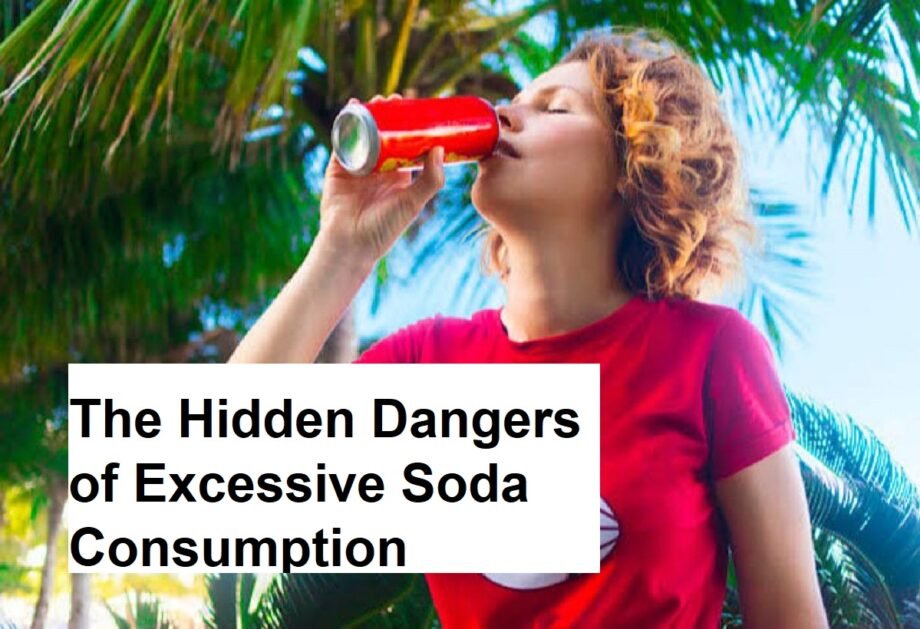Introduction
Sugar-sweetened beverages (SSBs), particularly sodas, are among the world’s most consumed drinks – yet research reveals alarming health consequences linked to overconsumption. With the average 12-oz can containing 39 grams of sugar (equivalent to 9.5 teaspoons), regularly exceeding dietary guidelines fuels preventable diseases. This evidence-based review exposes the physiological impacts of excessive soda intake.
5 Proven Health Risks of Excessive Soda Consumption
1. Metabolic Mayhem: Obesity & Diabetes
- Sugar Overload: A single daily soda increases type 2 diabetes risk by 26% (American Diabetes Association).
- Fructose Fat Storage: Liver converts soda’s high-fructose corn syrup directly into triglycerides, driving visceral fat accumulation.
- Insulin Resistance: Chronic blood sugar spikes desensitize cells to insulin, accelerating prediabetes.
2. Cardiovascular Damage
- 50% Higher Heart Disease Risk: Studies correlate >2 sodas/day with elevated triglycerides, LDL cholesterol, and arterial inflammation (American Heart Association).
- Hypertension: Sodium content + sugar-induced sodium retention strain blood vessels.
3. Accelerated Organ Stress
| Organ | Impact |
| Liver | Nonalcoholic fatty liver disease (NAFLD) from fructose metabolism |
| Kidneys | 30% higher kidney disease risk; phosphoric acid promotes stones |
| Pancreas | Overproduction of insulin exhausts beta cells |
4. Skeletal & Dental Erosion
- Bone Density Loss: Phosphoric acid leaches calcium from bones. Women drinking cola daily show 4% lower hip density (Tufts University).
- Tooth Decay: pH levels of 2.5-3.5 (similar to vinegar) erode enamel, causing cavities.
5. Neurological & Mental Health Risks
- Addiction Triggers: Sugar releases dopamine, creating dependency cycles.
- Depression Link: >4 cans/day increases depression risk by 30% (NIH study).
The Diet Soda Paradox: Not a Safe Alternative
While marketed as “healthier,” artificial sweeteners pose unique threats:
- Increased Sugar Cravings: Sucralose/aspartame disrupt gut-brain sugar response pathways.
- Vascular Risks: >2 diet sodas/day elevate stroke and dementia risk (Framingham Heart Study).
- Microbiome Damage: Animal studies show sweeteners reduce beneficial gut bacteria by 50%.
Breaking the Cycle: Science-Backed Reduction Strategies
✅ Practical Steps for Safer Consumption
- The 90% Rule: Limit sodas to <1 serving/week (WHO guideline).
- Hydration Alternatives: Infuse water with citrus/herbs; choose unsweetened sparkling water.
- Mindful Label Reading: Avoid drinks with >10g sugar/serving or “caramel color” (potential carcinogen).
✅ Policy-Level Interventions with Proven Results
- Mexico’s Soda Tax: 10% levy reduced SSB sales by 12% in 2 years.
- UK Sugar Reduction Program: Mandated 20% sugar cut in beverages by 2025.
Conclusion
Excessive soda consumption isn’t just about empty calories – it’s a catalyst for multisystem dysfunction. From insulin disruption to accelerated cellular aging, the science demands urgent behavioral change. By treating soda as an occasional treat rather than a daily staple, individuals can significantly lower risks of chronic disease. Public health initiatives and personal accountability together can turn the tide on this preventable health crisis.








